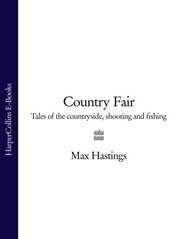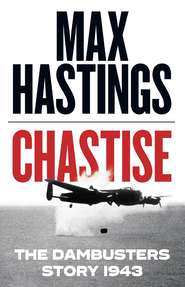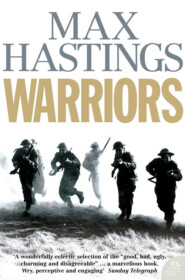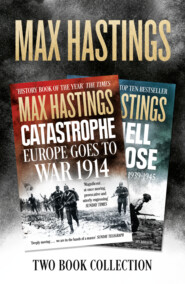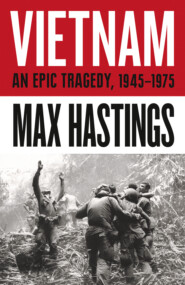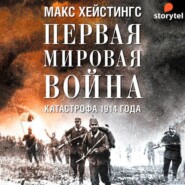По всем вопросам обращайтесь на: info@litportal.ru
(©) 2003-2025.
✖
Did You Really Shoot the Television?: A Family Fable
Настройки чтения
Размер шрифта
Высота строк
Поля
My dear Mina, you asked me to tell you everything what happened after you went. First they made a beastly mess with the confetti, & I think I am developing a new complaint. The symptoms are putting my finger in my mouth & making a dab at some coloured pieces of paper on the floor, well to return to the beginning again as soon as you left Willy and Harold had to see about getting home because Willy had to get to Windsor. So while Harold was racing around Peckham to try and find a taxi, I made tea which was very much liked by the ladies and also the strawberries and cream. Mr Smith had arrived by then and joined us. Mrs Mont was obliged to go by tram, then Mr Eastern waltzed The Merry Widow with Mrs Gordon, their tall hats stuck at a most ridiculous angle. Then the girls waltzed a little to Beryl playing. She was very jollie [sic] and nice, she kept us alive. After a while Father Alton had to go and Mr Eastern also. I think myself that he is rather afraid of his brother George. He made two or three trys [sic] to go, and at last ran down the road like mad. Then Mrs Hastings and the girls went, leaving us alone with pere Leo il y avait encore quelque chose dans le bouteille n’est ce pas.
This narrative continues for many pages, before concluding: ‘There is no need to send you my hopes & wishes for you both because you know them, but may God and the blessed Virgin shower you both with blessings and may you and your husband be Pals to the end, is the one wish of your loving mother.’
Liz Hastings, Edward’s widow, also wrote to her new daughter-in-law the day after the wedding: ‘Does Basil know he had a column in the Morning Leader on Saturday? I forget the title…You must have had dreadful trouble with confetti. Well, dearest Mina, I must draw this scribble to a close with much love and the hope that you will always be very happy in this world and the next. Very affectionately your mother L. Hastings.’
Basil indeed found happiness with his Billie. They had two children: a son, my father Douglas Macdonald Hastings, born in October 1909; and a daughter, Beryl Ursula, who arrived two years later. The Basil Hastingses gradually drifted apart from the rest of the Tribe. Only Lewis featured much in their later lives. None of the other brothers or sisters made much mark on the world. Gladys, indeed, chose to leave it, following her great-aunt Emily into a convent and taking the veil. Among the others, though all remained churchgoers, religion no longer played the dominant, indeed oppressive, role which it had done in the lives of Hugh and Edward Hastings. Basil addressed worldly concerns with more ambition and greater success than either his unlucky father or grandfather.
Lewis, meanwhile, was cutting an exuberant swathe across South Africa. He adopted a lifestyle so remote from those of his forebears as to defy any notion of inherited values. It was as if he set out to compensate for generations of stiff-collared family respectability and piety by cramming a century’s misdeeds and extravagances into a single lifetime. He was also writing verse. Here is a fragment of doggerel, inevitably Kipling pastiche, published in a South African newspaper in 1903, while he was serving with the Mounted Police.
When I was out in Africa amaking of my pile,
I met a sort of auxiliary bloke got up in reg’lar style;
He was sitting over a Kaffir pot concocting a sort of stew,
‘And so,’ says I, ‘excuse me please, but who the deuce are you?’
Says he, ‘I’m His Majesty’s half-and-half, policeman and soldier too.’
They can handle a sword or carbine, a lance or a billiard cue,
And what they learned of botany was never learned at Kew.
They can follow the spoor of a cattle thief from the bleating of a ewe,
Though they’re only blooming hermaphrodites, policemen and
soldiers, too.
Since then I’ve met them everywhere, a-sleeping under the skies,
Hard as a packet of tenpenny nails, the sort as never dies.
They ain’t quite strict teetotallers, they like their Mountain Dew, And like it, of course, just half-and-half, whisky and soda too. With some dop and a government blanket, they lie in the air so clear, On the wide veldt in the moonlight with their troop-horse hobbled
near.
Lewis wrote much later, at the end of a life rich in incident:
In De Quincy’s words, I have taken happiness in its solid and its liquid form, both boiled and unboiled. The world is so full of beasts, birds, fishes. The swoop of pratincoles on a Kalahari locust swarm. Rosy circles of flamingos above a salt marsh. Crocodiles on Zambesi sandbanks, and the great shapes of hippo walking by night past the camp-fire. Salmon leaping the fall in a Highland river. And sounds – the thunder of hooves of a great herd of wildebeest. The high, singing note of a ship’s rigging in a full breeze (the crew of that ship lived in a filthy rat-haunted fo’c’sle, but they had a new Bible apiece given to them by the kind shipping company). Smells – the damp smell of Africa around the Primasole Bridge in the Sicily campaign. The linked odours of horse and leather in night marches of the older war. The smell of a beech wood in autumn, and the sweet scent of a flue-cured tobacco barn.
Then there are people – bushmen with their bows and arrows in Ovamboland. The stripped divers at Monkey Island. Early Brown-shirts waving their antennae at the Brandenburger Tor. The black and the white and the brown, the hairy-heeled and the sophisticated, the hard-boiled and half-baked.
Lewis made a career as an adventurer, or, if you like, as a sensationalist, in the sense of one who pursued sensations, preferably in wild places. He took the title of his published fragment of autobiography from an early experience at a circus in Delagoa Bay. Having paid his half-crown for admission, he was dismayed to discover that he was expected to put a hand in his pocket again, to view one special attraction. Challenged, its cockney keeper responded impenitently: ‘What do you expect, gents? Dragons are extra!’ In Lewis’s life, not much else was. His experiences would have adorned the pages of a Rider Haggard novel. He became well known in bar rooms and around campfires across southern Africa; uncomfortable without a rifle in his hand, or at least in his saddle bucket; welcoming a ‘roughhouse’; heedless of where next week’s grubstake would come from. In the second decade of the century he became briefly prominent in South African Unionist politics. When the First World War ended in 1918 Lewis, who had acquired a reputation as a public speaker, was dispatched around France to address disgruntled soldiers about their demobilisation. At one such gathering, a man called out accusingly from the crowd: ‘Aren’t you the same Lewis Hastings who murdered a man in Eloff Street during the Johannesburg diamond riots of 1913?’ Lewis, quite unabashed, called back: ‘I didn’t murder him. I broke my rifle stock over his head.’
Lewis argued that the disease-carrying insects of Africa fulfilled an admirable function by preserving the virginity of the vast tracts of bush he loved so much. He was irked when, in later life, he received a cool reception from the British Empire Society for his proposal, advanced not entirely in jest, to form a committee to protect the tsetse fly. In his early days as a professional hunter in Natal, he worked with two young Boers killing springbok, which in Kimberley fetched as much as a sovereign apiece for a ninety-pound carcass. He and his companions rode out to spend three days at a time pursuing the vast herds, shooting scores to be carried to market on a groaning wagon drawn by sixteen oxen. ‘To be nineteen years old,’ wrote Lewis, ‘to wake before sunrise with Halley’s Comet overhead, a rifle by one’s side, and a whole perfect day before one on the plains, that was surely very near the crown of life. It was so cold at early morning that the frost crackled beneath our feet and the rifle barrel seemed to burn one’s fingers.’
Having stalked a herd, often hundreds upon hundreds of springbok dancing across the veldt in great irregular columns, Lewis and his companions aimed to fire three, four, five shots apiece as fast as they could push bullets into the breeches of their old falling-block rifles, dropping as many beasts. Then they snatched the bridles of their ponies and set off in pursuit, racing to overtake the herd, bent low over their saddles: ‘The nearest waiting horseman goes for all he is worth, not towards the buck but across their line. Hardly checking from the gallop, he flings the reins over his horse’s neck, throws himself off, and firing from the knee, picks off one flying buck after another as the frantic multitude run, spring, and jink at close quarters…The excitement is packed into a few vivid minutes. Then it is over. The herd swings out of the danger zone.’ The hunters then retraced their trail, gathering and cleaning carcasses for the wagon.
Lewis lived long enough to see the civilised world recoil from the slaughter of African game. What men such as he did in the early years of the century came to be regarded with revulsion. The breech-loading rifle and improvements in transport enabled hunters to kill and market animals on an industrial scale, accomplishing in the first thirty years of the twentieth century an unprecedented depletion of the continent’s wildlife. In fairness to Lewis and his generation, over the ensuing eighty years habitat loss – the consequence of exploding human populations – has proved an even more fatal foe of Africa’s game than were the massacres committed by the old white hunters. But Lewis, looking back later, confessed that he regretted the wholesale killings of elephant and buffalo in which he participated so eagerly – by which, indeed, he made his living – in the years before 1914.
Around 1911, he became fired with the new craze for aviation. He formed a friendship with a man named John Weston, who brought the first aeroplane to South Africa – the usual double-kite contraption of the period, laced with piano wire and christened the ‘Weston-Farman biplane’. Lewis adored his flights with Weston: ‘The pilot occupied a flimsy sort of box open on all sides, and his passenger a kind of Madeira chair, just behind and above him. The sensation for anyone conveyed in this way, when the unwieldy machine drooped its nose earthwards, was terrific. No modern passenger can have any conception of the ecstasies of horror and rapture induced by a trip in a thing like the Weston-Farman.’ Weston the pioneer was so obsessed by the beauty of mechanical science that when a daughter was born to him, he insisted that she should be dressed in dungarees, and play only with nuts and bolts, in the hope that she might grow up into an aviatrix. In this he was disappointed, but unlike most of the early airmen, he survived to die in bed.
Weston’s plane and his own beloved Greener .303 falling-block rifle were the only examples of modern technology which Lewis enthusiastically embraced. Despite his use of firearms for hunting, he applauded the fact that the many quarrels in the Kimberley diamond diggings were settled with bare knuckles. He himself was a keen boxer, with or without gloves. In South African mining towns, he said, ‘the flourishing of guns was a mortal offence. I remember one case where a gentleman newly arrived from Western America, in the course of an argument in one of the canteens, drew a six-shooter. That was the end of him. A dozen willing hands cast him and his weapon into the muddy Vaal River. The diggings never saw him again. And yet, oddly enough, years afterwards in the Kalahari Desert during Botha’s campaign, I recognised this same American filibuster in the ranks of one of our mounted regiments. So his heart must have been in the right place, after all.’
Lewis became intimately acquainted with a host of buccaneers and freebooters such as Leander Starr Jameson of Jameson Raid notoriety, and the bandit-smuggler Scotty Smith. Far from harbouring any dislike for the Boers – the English war with them, remember, was not long finished – Lewis admired the hardy Dutch farmers. Courage and uncomplaining fortitude were the first qualities which he sought in a man, and most Afrikaners possessed them. He also warmed to black Africans, especially Khama, paramount chief of Bechuanaland – modern Botswana. Lewis was once hunting, with the chief’s permission, in remote bush five days’ march from Khama’s capital. A native runner appeared, bearing in a cleft stick a message written at the chief’s dictation by his European-trained secretary: ‘Please to take great care now on the Shoshong, for it is this month the breeding season of the black mamba.’ Lewis was enchanted by the solicitude of the old chief, who had sent a messenger a hundred miles across country with his kindly warning.
Lewis’s first body-servant and gun-bearer was a Zulu named Shakespeare, who stayed with him for years, and often entertained him with tales of his tribe’s 1879 war with the British, only a quarter of a century earlier. Shakespeare claimed that his own father had been among the party which cut down the Prince Imperial, son of the exiled French Emperor Napoleon III. Perceiving that the dead man was a chief of some importance, Shakespeare asserted that, in accordance with tribal custom, his killers extracted and shared a mouthful apiece of the Prince’s raw heart. Lewis believed this story to be true. It left him puzzled about what might therefore repose in the casket supposedly containing the boy’s heart which had been returned by Lord Chelmsford with much ceremony to his grieving mother, Empress Eugénie, in Surrey.
Lewis loved the legends of the African tribes, of which he often included samples in his own anecdotage. But in his attitude to the continent’s indigenous peoples, he was a man of his time. ‘A lot of nonsense is talked about the yearning for freedom of this and freedom of that,’ he observed characteristically. ‘The only freedom Africans want is freedom from trousers.’ That line appeared for years in a dictionary of quotations, until a squeamish modern editor deleted it. Lewis loved to meet Africans in what he perceived as their natural setting – villages amid the vast expanse of the bush. He was moved to pity when he saw them in the towns of South Africa and Rhodesia, where they seemed to him to shrink and become lost souls.
In the last years before the First World War, Lewis devoted increasing energy to journalism and politics, to which he was introduced by the ex-Jameson raider turned financial magnate Sir George Farrar. Farrar persuaded Lewis to help organise the Unionist Party in the Transvaal. He worked closely with two former members of the ‘Milner Kindergarten’, Patrick Duncan and Richard Feetham. In July 1913, in their company Lewis played a dramatic part in suppressing the huge, violent miners’ strikes which convulsed South Africa. Thousands of rioters, many of them armed, converged on Johannesburg. Lewis, though the youngest man in the Rand Club that day, found himself called upon to command a local ‘Civic Guard’. This was the occasion when he broke a Mauser rifle over the head of a man whom he saw raising a gun to fire at his company. Lewis cheerfully admitted afterwards that he held no special opinion one way or another about the merits of the authorities’ case, or that of the strikers. He merely took his usual view that if there was a fight, he wanted to be in it. Botha and Smuts suppressed the rioters by promising generous concessions, none of which were fulfilled. A few months later, Lewis found himself with a real war to fight, on a scale which satisfied even his own gluttony for trouble.
I was brought up to idolise Lewis, as my father did. Even in old age, he retained his magical speaking voice. He presented a magnificent tawny figure, about whom no legend could be doubted. He was entirely of his time and place. A sceptic would have said that his life was selfish and reckless. Most of his virtues were those of the Clubland Heroes of fiction, founded upon courage, physical prowess, a boundless appetite for excitement and fellowship. His views and prejudices lacked any shading: somebody was a white man, or a rotter; a cause was worthless, or to die for. Yet Lewis possessed real literary gifts, not least a talent for verse. When he exercised his brain and pen, the results were sometimes remarkable. His accomplishments were much slighter than they might have been, because he always chose to please himself, to forswear discipline, to pursue whatever overhead star momentarily seized his imagination.
To my father and later myself, when we read of the Hastingses of the nineteenth century, they seemed respectable, hard-working, decent Christian people. But glamour and romance were lacking from their lives. Lewis, by contrast, towered over every room he entered. Even in old age, in any company he looked willing as well as able to knock down any man who deserved it. Like so many black, or at least grey, sheep he was much more fun than the chaps who got made head of house at school or lived blameless lives in – well, Trinity Square, Borough, where the Tribe grew up. And by 1914, the fun in Lewis’s life had hardly started.
THREE Stagestruck (#ulink_532c6a5f-7582-5d75-bb4c-c60bbffc7894)
My father disliked the name with which he was christened, Douglas, almost as much as his own father Basil resented being Basil. Grandfather sought to assuage the pain by signing himself in print Basil Macdonald Hastings. Once Douglas Macdonald Hastings escaped from infancy, he became universally known as ‘Mac’. At the time of his birth in 1909, his father was a struggling freelance journalist. A year later, Basil became assistant editor of the Bystander magazine, then in its heyday. In this role, he once sought to persuade Max Beerbohm to contribute an article about his schooldays at Charterhouse. ‘Dear Hastings,’ Beerbohm wrote back, ‘I fear that I must decline, for if I accepted I know that the poison would creep into my pen.’ How well I recognised this sensation as I read the letter seventy years later! By then I had myself experienced the miseries of the same school.
Basil prospered at the Bystander, and spread his wings. In 1911 he wrote a comic play entitled The New Sin, and sent it to the Vendome-Eady theatrical management. They accepted it at once, gave him a princely £10 on account of royalties, and a contract promising him 5 per cent of weekly receipts, rising to 10 per cent on anything over £1,000 a week. After the play’s first night at the Criterion, there were fears. A pessimistic producer muttered about ‘complete failure’ – then was confounded. The New Sin became the hit of the season and ran for two years. It was translated all over Europe and performed on Broadway with an all-star cast. Basil travelled to New York on the Lusitania for its opening. Six thousand copies of the play were sold in bookshops. There were negotiations for the cinematograph rights. Basil wrote: ‘Heaven send me a few more such “complete failures”.’
The plotline of The New Sin, a comedy, concerns a man who needs to stay alive, because if he dies ten feckless siblings stand to collect large inheritances. Originality derived from the fact that its characters were all male. Pasted into the flyleaf of our family copy of Saki’s Beasts and Superbeasts is a note from the Cocoa Tree Club in St James’s Street: ‘12.2.12 Dear Mr Hastings, congratulations on your brilliant play, sincerely yours, H.H. Munro.’ A host of other literary stars, including J.M. Barrie, paid tribute. Great things were predicted for Basil. By the time young Mac became conscious of the world, his father was a recognised figure in the London theatre.
Basil’s subsequent plays, though cast with such starry names as H.B. Irving (elder son of Henry) and Cyril Maude, were notably less successful. Love – and What Then? flopped. ‘Though witty and amusing,’ said The Times, ‘it has a weak and unconvincing story.’ The Tide in 1914 did no business. When The Advertisement opened at the Kingsway Theatre in April 1915, The Times was again unenthusiastic: ‘There are in it excellent passages, interesting ideas and some dramatic situations, but on the whole it resembles the chief character in being good only in parts.’ A 1915 collaborative effort with Stephen Leacock, Q, was likewise a box-office failure.
Basil was much more successful, however, as a writer of revues, which enjoyed immense popularity throughout the First World War, especially with men back from the trenches. At one moment in 1915 he had three productions running simultaneously in the West End, of which Razzle-Dazzle at Drury Lane, starring Harry Tate, was the biggest hit, running for over four hundred performances. Basil collaborated with the famous trench cartoonist Bruce Bairnsfather, creator of Old Bill, to write The Johnson ’Ole. He continued to contribute light pieces to newspapers, and was for a time a regular columnist for the Evening Standard. In 1916 he earned £1,100, a good income for the time. His own health was poor, rendering him ineligible for active service, but three of his brothers were fighting in France, and often wrote to Basil seeking tickets for his shows for fellow officers coming home on leave.
Today, it is taken for granted that the First World War was an unspeakable experience for all those who participated. Yet, as in all conflicts, there was a small minority of eager warriors, who welcomed the opportunities and challenges which the battlefield offered. Among these, inevitably, was Basil’s elder brother. In South Africa in August 1914, at General Smuts’s request Lewis managed a recruiting campaign for the Imperial Light Horse, to fight in German SouthWest Africa – modern Namibia. Lewis, by then thirty-four, possessed notable gifts as an orator. He used these to effect in a barnstorming tour, addressing meetings up and down South Africa. When the recruiting drive was over, he was invited by the Transvaal government to accept some token of its thanks. In those days, volunteers for the ILH were expected to supply their own kit. Lewis asked for a horse and saddlery, to outfit himself for the campaign. A dinner was thrown by the Transvaal Unionist Party at the Noord Street concert hall in Johannesburg. A pretty girl rode Lewis’s charger, a big chestnut named Ensign, up the steps and into the hall for presentation. During the speeches, Ensign disgraced himself by lifting his tail, to riotous applause. Then Lewis rode the horse down the steps into the city street, and off to war.
‘D’ Squadron of the Imperial Light Horse was composed of the sort of men whom Bulldog Drummond would have applauded – Currie Cup rugby players (who included Lewis himself), boxers, athletes, horsemen all, well accustomed to firearms. Together with the troopers of other units such as the Natal Carabiniers and Rand Rifles, they celebrated riotously at their camp outside Cape Town before boarding the ships which carried them to South-West Africa in September 1914. Once in the Kalahari Desert, Lewis and the other Light Horsemen were deployed as scouts and intelligence-gatherers for the main British column. The South Africans found themselves skirmishing with Uhlans of the German regular cavalry, quite unversed in bush life. ‘The squadron bag in the first three days consisted of about a dozen Huns, three camels and an adolescent seal,’ wrote Lewis. The latter poor creature, miles from the sea, had been the mascot of a German unit, and was now adopted by the Light Horse. Lewis was delighted to meet the seal again a few months later, ‘pleased and glossy in Pretoria Zoo’.
Trooper Hastings enjoyed himself shamelessly, despite the atrocious conditions prevailing on the battlefield. ‘All desert campaigns have much in common, and we suffered the usual pests of sandstorms, veldt sores, heat, dirt and flies. The supply system was scandalous. It wasn’t only that we were on starvation rations and that a diet of dry biscuit and bully caused rampant desert sores, but the equipment supplied by rapacious profiteers in the Union was rotten. Nearly all the water-bottles developed leaks in the first twenty-four hours.’ In one skirmish, Lewis was hit on the shin by a spent bullet, and dismounted to have the wound dressed. His hard-living general, old Sir Duncan McKenzie, chanced to gallop by at that moment. He blazed at Lewis: ‘What the hell are you doing here? You can ride, can’t you? Then why the hell aren’t you with your troop?’ Lewis hastily remounted, though when the action was over he was obliged to retire to hospital for a fortnight.
He loved his time in the SouthWest, mostly serving under a tough old Boer named Jacobus van Deventer, who when war came in 1914 had mustered his Commando, then cabled General Botha: ‘All my burghers armed, mounted and ready. Whom do we fight – the British or the Germans?’ On one march in April, the South African horsemen covered two hundred miles in eleven days, despite being obliged to haul forward in trucks every gallon of water for horse and man. German resistance was feeble: in the entire campaign only 113 South Africans were killed by enemy action, as against 153 who died from disease or accidents. Hardship rather than peril was the hallmark of the experience, as Lewis readily acknowledged.
By early 1915, the South Africans deployed 43,000 men in South-West Africa. The Germans, heavily outnumbered and lacking a commander to match the genius of von Lettow-Vorbeck in Tanganyika, surrendered in July. When Lewis’s unit returned to Cape Town, he was among many men who hastened onwards to England, to join a vastly more serious war. Commissioned into the Royal Field Artillery, he spent the rest of the war in France, entirely happy commanding a battery of eighteen-pounders, finishing as a major with the Military Cross. He saw the terrible first day of the Somme from an observation post in the front line, and never forgot ‘the orderly rows of British dead in front of the German wire’. He wrote to Basil on 29 April 1917: ‘Recently I’ve seen dozens of air fights, which are the cream of spectacles when you get anything like a near view. The Bosch is now getting it in the neck up above, thank goodness. For the present, we’re more or less in trenches again – but a moving order may come at any moment. I’m writing this in an OP in the outpost line on a comparatively peaceful and sunny morning. Love to Billie and the youngsters, yours ever, Lewis.’
For the rest of his life, though Lewis readily acknowledged the scale of 1914–18’s horrors, he was exasperated by those who professed that the experience was worse in kind than any other conflict. In 1963, when I was working as a researcher on what became a legendary BBC TV series, The Great War, he wrote me a letter about his own memories. He said that he had just finished reading a new book on the Waterloo campaign. ‘You know,’ he said,
those three days in 1815 were as full of mud and blood and horror and blunders as the long Somme agony was. A review of Henry Williamson’s book on the Somme by some hysterical nitwit claimed that all the good and brave and the potential leaders were annihilated, and apparently on the first day! Frightful as it was, one must remember that it was followed by the large-scale battles of ’17 and the bloody squalor of Passchendaele. British fortitude and capacity for sacrifice were not written off in November 1916. Moreover, though I know beyond peradventure that our chaps in 1918, especially after the great German attacks in March and April, were on the whole below the heroic standards of the British armies of 1916, they were still capable of inflicting upon the German Army in August, September and October 1918 the greatest defeats in German history, and of capturing more men, more guns, and more territory in that final victorious onslaught than all our bloody allies put together – French, Belgians, Americans etc. This is always forgotten. Wish I could tell you some more – about horses! About mules! Yes, the poor bloody mules!
Basil’s other brothers found the experience of war vastly less rewarding than did Lewis. Aubrey, twenty-eight years old, was commissioned into the 7th East Surreys, a unit of Kitchener’s New Army, in the spring of 1915. His battalion was sent to France that summer. Thereafter, Aubrey wrote frequently to Basil, in a vein much more familiar to modern students of the First World War than Lewis’s exuberant scribbles. He described, with mounting dismay, the usual murderous manifestations of trench warfare – shelling, bombing, sniping, losses, flies, relentless tension. By August he had become desperate to escape, and wrote to Basil asking whether his brother could exercise any ‘pull’ to secure him a transfer to the Royal Flying Corps: ‘I’ve got a certain amount of mechanical knowledge and I think my CO would recommend a transfer, on the ground of being married.’ Actuarially, had the poor man but known it, his prospects of survival as a pilot would have been more precarious than as a junior infantry officer. But in that place in those days, any posting seemed preferable to serving in the line with an infantry battalion. Aubrey wrote to Basil on 17 August 1915:
Thanks very much for enquiring about the Royal Flying Corps. I do hope it comes to something. My appearance in the casualty list for 13 August refers to the second time I’ve been hit – only slightly, Thank God! The Hun put over some shrapnel – registering shells, I think. Willie Martin and I were in command of Support trench with 3 platoons (Willie is our second captain – a ripping fellow – regular officer) we got the men in dugouts and were returning to the telephone dugout…We heard the usual whizz, it went off bang and I felt a sting in my right shoulder. As soon as it was over we emerged and I took my coat off and found I’d been hit with two splinters. They only made a small patch of blood on my shirt. It’s not the fact of being hit, Basil, it’s the frightening effect of shells etc that make you so nervy. I’m much more nervy today than when I first came out.
PS I don’t say anything to the women about the fighting, of course.







